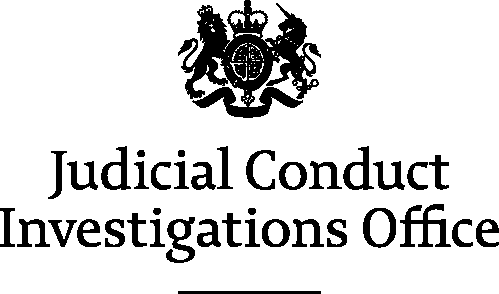


JCIO 65/24
Date: 07 November 2024
A spokesperson for the Judicial Conduct Investigations Office said:
The Lady Chief Justice, with the Lord Chancellor’s agreement, has issued District Judge (Magistrates Court) Stephen Leake with formal advice for misconduct.
Facts
The ‘Guide to Judicial Conduct’ requires judicial office-holders to display diligence and care in the discharge of judicial duties.
In May 2024, a complaint was made that District Judge Leake delayed giving an oral ruling in cash forfeiture proceedings from 5 December 2022 until 11 October 2023. This was despite the fact he had given a public deadline of 17 February 2023 to provide his ruling. The complaint also alleged that he then failed to provide written reasons for his ruling.
District Judge Leake’s representations
The judge accepted that he delayed giving a ruling. He acknowledged he had fallen short of the expected standard and said he was very sorry. He said that there had been reduced judicial resources in his area combined with a very heavy pressure of work but he recognised that he should have insisted on taking time out of court to deal with the case earlier and sought support and guidance. The judge also accepted that he had told parties that he would provide written reasons but that he had expected them to make an application for those reasons, as would be usual in the magistrates’ court, and that did not happen.
Nominated judge’s findings
Following an investigation carried out under the Judicial Conduct Rules 2023, the nominated judge found that the judge’s delay of 10 months in giving a ruling was a breach of the standards of conduct justifying a disciplinary sanction. She recognised that the judge was under a heavy workload at the time but considered that the delay was well beyond the expected threshold of three months and was not in line with simple, speedy, summary justice. The nominated judge found that there was no misconduct in the delay in providing written reasons because the party had not made an application for them.
In recommending formal advice, the nominated judge took account of the fact that the parties did not appear to have been provided with reasons for the delay and that it continued despite the parties chasing the court. However, she noted that the judge was under a heavy workload and that the delay was not intentional. She accepted that the judge had been apologetic and had insight into the problems of delay. Finally, she noted that the judge had no previous findings of misconduct and the delay was restricted to a single case.
Decision
The Lord Chancellor and the Lady Chief Justice agreed with the nominated judge that formal advice was a reasonable and proportionate sanction in this case.
Media queries in relation to the JCIO should be made in the first instance to the Judicial Press Office - telephone 020 7073 4852 or via email - press.enquiries@judiciary.gsi.gov.uk
Sanctions for misconduct by judicial office-holders are set out in the Constitutional Reform Act 2005. They are, in order of severity: formal advice, formal warning, reprimand and removal from office.
For more information about the Office, including details on how to make a complaint against a judicial office holder, you can visit the JCIO website at: Judicial Conduct Investigations website